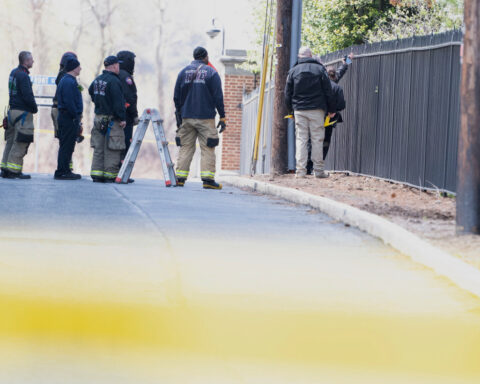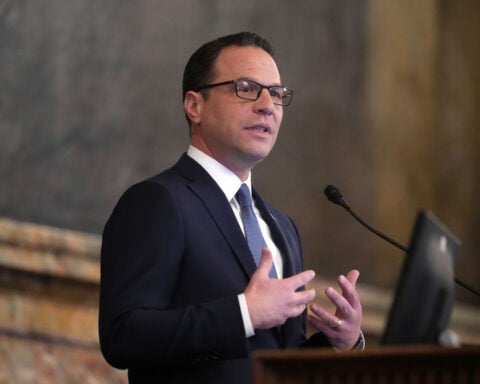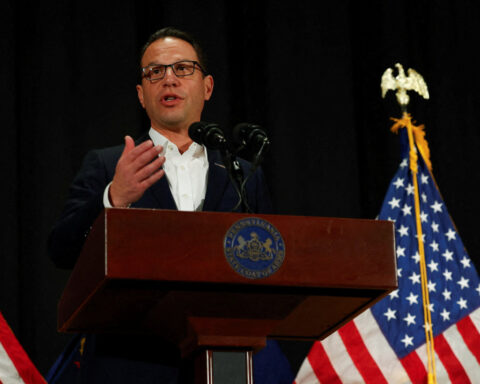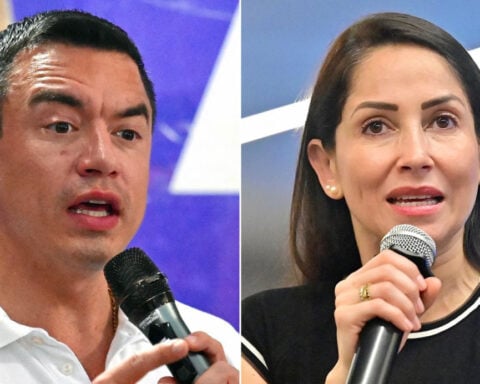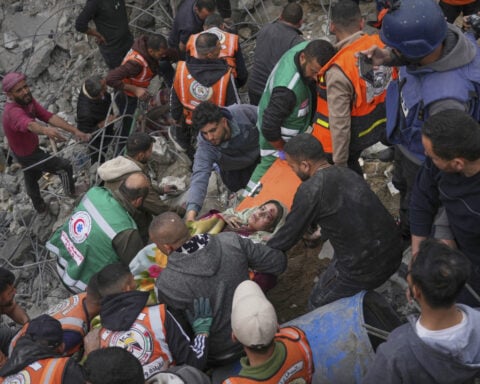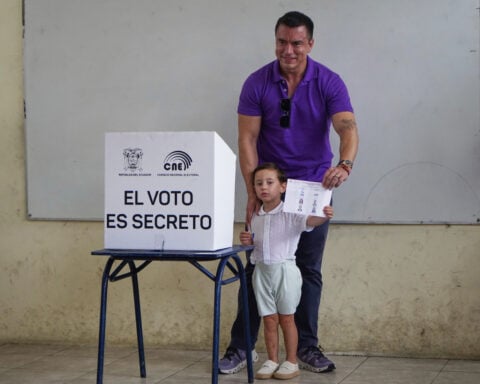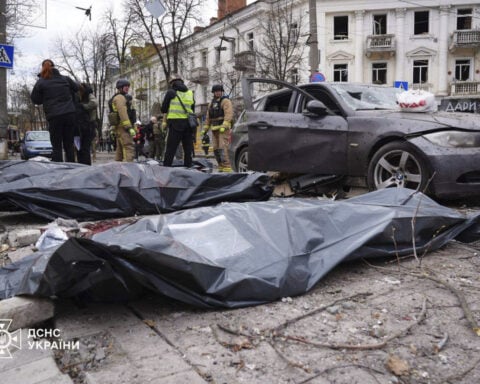(CNN) — With the stroke of a pen on Monday, President Donald Trump completely upended the Justice Department’s four-year effort to arrest, prosecute and punish the people who attacked the US Capitol on January 6, 2021.
It was the largest criminal probe in American history, those who heeded Trump’s call in 2021 to come to Washington and try to stop Congress from certifying his 2020 election defeat. More than 140 police officers were injured during the seven-hour siege, which also led directly or indirectly to the deaths of four Trump supporters in the mob and five police officers.
Trump on Monday pardoned nearly every single convicted January 6 rioter, and at his direction, the Justice Department is also beginning to ask the federal court in Washington, DC, to dismiss pending cases with prejudice, meaning charges cannot be brought again at a later date.
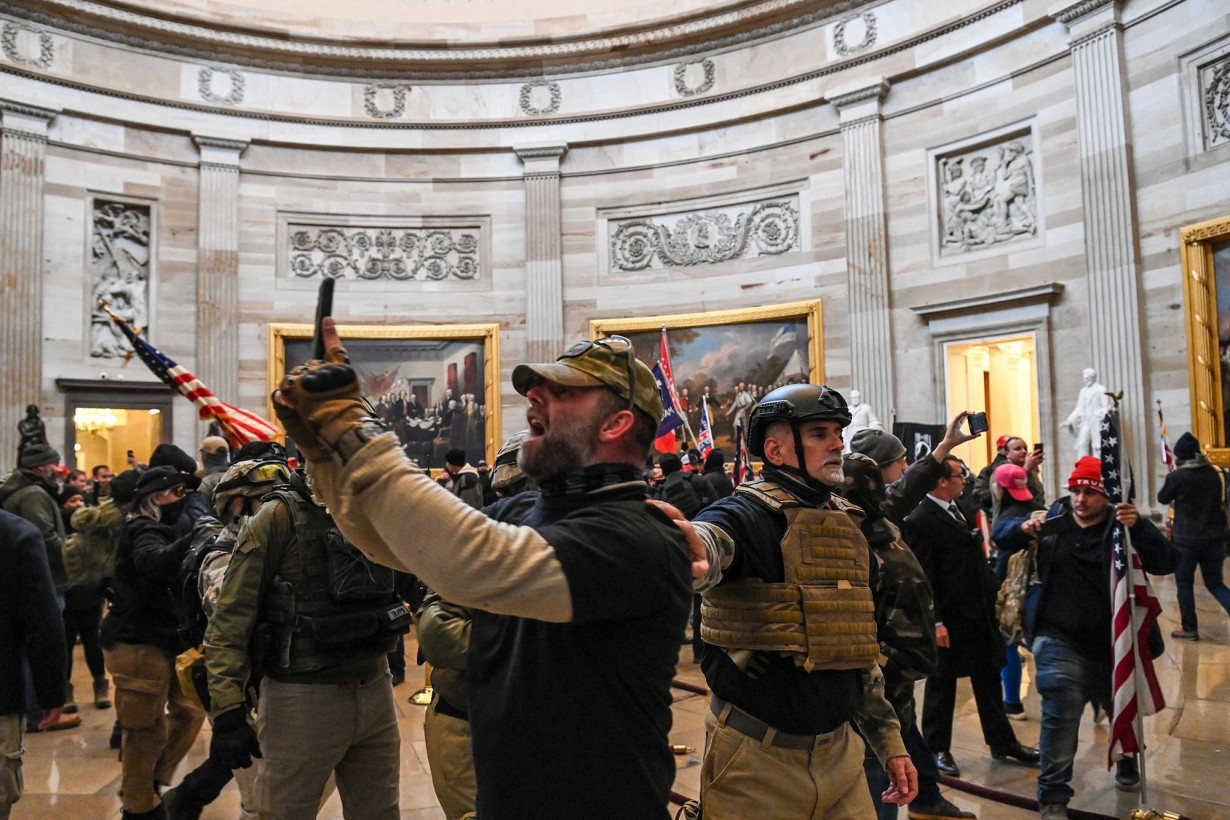
The presidential proclamation Trump signed in the Oval Office said this action of mass clemency “ends a grave national injustice that has been perpetrated upon the American people.”
Trump’s pardons make no effort to distinguish between people who engaged in violence that day compared with those who were charged or convicted of nonviolent offenses. For instance, the pardons include the men who viciously beat DC police officer Michael Fanone and pepper-sprayed US Capitol Police officer Brian Sicknick, who died the next day.
“Six individuals who assaulted me as I did my job on January 6 … will now walk free,” Fanone told CNN’s Anderson Cooper on Monday. “Six individuals who threatened my life and threatened my family members … My family, my children and myself are less safe today because of Donald Trump and his supporters.”
Here’s what to know about the pardons:
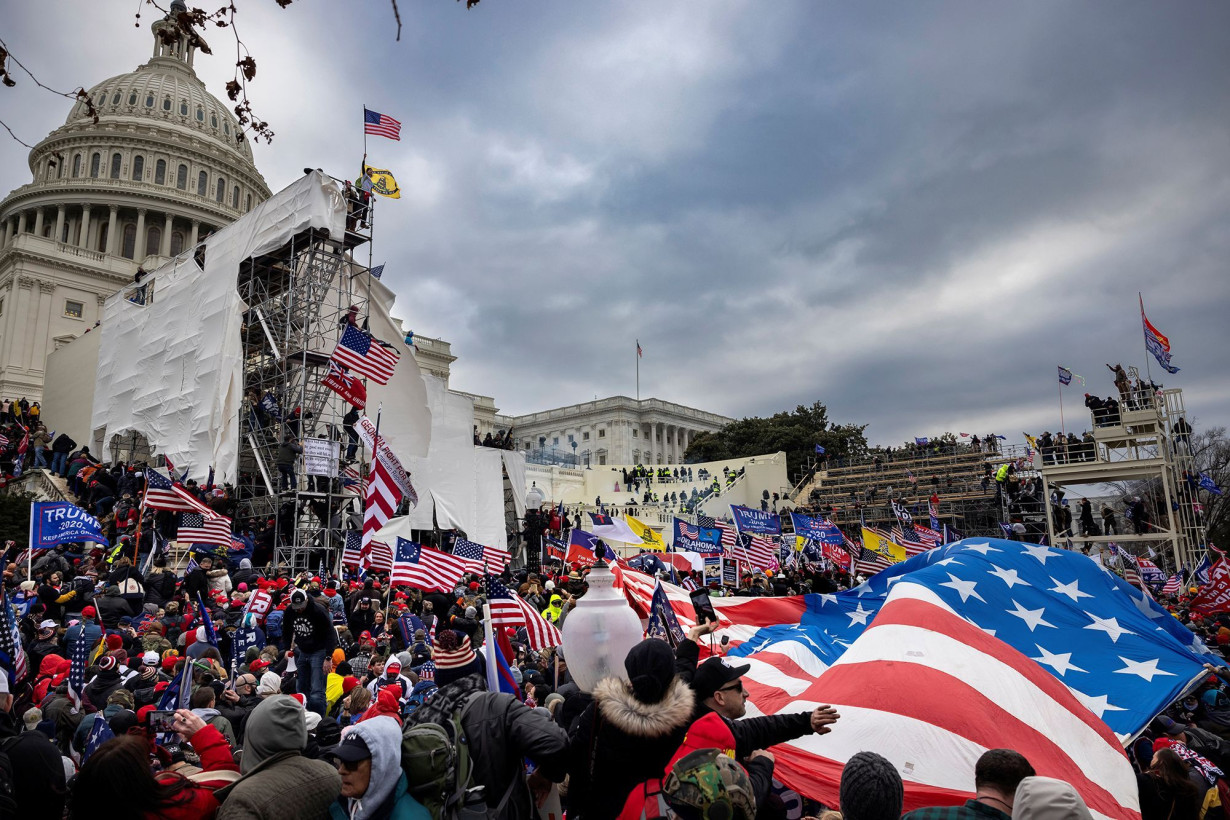
Pardons for virtually all January 6 convicts
The proclamation Trump signed grants a “full, complete and unconditional pardon” to virtually everyone who was convicted of January 6-related crimes.
That covers approximately 1,250 people, the vast majority of whom pleaded guilty and admitted in court that they broke the law.
There was no differentiation between people convicted of violent felonies versus nonviolent misdemeanors, as Trump’s allies have signaled in recent weeks. Instead, the blanket pardon covers hundreds of felony rioters who were guilty of assaulting police officers, attacking members of the media, obstructing police during a riot, and destroying government property.
Stunningly, the pardon includes Enrique Tarrio, the leader of the far-right Proud Boys, who was convicted of seditious conspiracy and sentenced to 22 years in prison.
Among the other pardon recipients: Devlyn Thompson, who hit a police officer with a metal baton, and Robert Palmer, a Florida man who attacked police with a fire extinguisher, a wooden plank and a pole.
Commutations for leaders of extremist groups
Trump’s proclamation singled out 14 members of far-right extremist groups, like the Proud Boys and the Oath Keepers, who received commutations instead of pardons.
This means they’ll be freed from federal prison but won’t have their civil rights restored, as happens with a full pardon, which paves the way for a recipient to get back their right to own a gun or their right to vote. However, Trump said his administration will be reviewing these cases to see if pardons are appropriate in the future.
These people were charged in the most high-profile seditious conspiracy cases – most were found guilty, though some were acquitted of that charge while being convicted on other felony charges.
The clemency for people convicted of seditious conspiracy is a stunning move. Those defendants were seen as among the “worst of the worst,” largely because prosecutors proved that – unlike many of the other Trump supporters who breached the Capitol that day – these people had a specific plan to violently subvert the government.
The commutations covered Oath Keepers associate Thomas Caldwell, who was acquitted of seditious conspiracy but found guilty of obstructing an official proceeding for stashing weapons at a nearby Virginia hotel for his allies to potentially use on January 6. Kelly Meggs, leader of the group’s Florida chapter, was sentenced to a decade in prison for his seditious conspiracy conviction. And Proud Boys leader Joseph Biggs will also be released from prison, where he’s serving his seditious conspiracy sentence for leading a throng of Proud Boys into the Capitol.
Dismissing all pending prosecutions
The vast majority of January 6 cases have already been resolved in court, leading to guilty pleas or trial convictions. But the final part of Trump’s proclamation directed the approximately 300 pending cases to be dismissed.
About 60% of those cases are felony cases involving violent attacks against police, according to Justice Department statistics. Some charges were filed as recently as last week as part of the ongoing investigation that is all but over now.
The proclamation says the attorney general should “pursue dismissal with prejudice” for “all pending indictments” related to January 6. “With prejudice” means the charges cannot be refiled in the future.
It will take some time, perhaps a few days or weeks, for federal prosecutors to file motions in court to dismiss these cases. Technically, it will be up to a judge to formally dismiss the cases, and judges have very little discretion to stop it from happening if that’s what the Justice Department asks for.
There were fewer than 10 people deemed by a judge to be too dangerous to let out of federal custody before their trial. Once their cases are dismissed, they will also be released.
Trump went further than anyone expected
During and after the 2024 campaign, Trump kept the door open to pardoning every defendant. But he also hedged at times. In recent weeks, Trump’s allies signaled that pardons would be restricted to nonviolent defendants.
Vice President JD Vance said this month, “if you committed violence on that day, obviously you shouldn’t be pardoned,” and House Speaker Mike Johnson said Sunday that “peaceful protesters should be pardoned, but violent criminals should not.” Trump adviser Jason Miller echoed this in an interview Monday morning with CNN’s Jake Tapper before Trump was inaugurated.
“President Trump has said we’re going to look through each of the cases individually,” Miller said. “We’ve also said that, definitely, we do not support in any way, shape or form, anyone who’s been violent towards law enforcement or things of that nature. But there have been a lot of people who’ve been treated unfairly, so they’re going to look on a case-by-case basis.”
But there was no “case-by-case” review, as Trump aides promised.
Instead, Trump granted maximum clemency by ending all of the prosecutions, freeing everyone from prison and pardoning about 98% of the convicted rioters. He did precisely what his staunchest supporters in the January 6 community were calling for – blanket clemency for everyone.
A federal official involved in January 6 cases told CNN that they felt “disappointed but not surprised” and “deflated but not defeated” by the mass clemency. They believe Trump’s pardons send a signal “to the country and to the world, that we now need to reckon with.”
“This pardon — and specifically the blanket nature of the pardon — sends the message that so long as your candidate wins, partisan violence against law enforcement in the seat of our nation’s government is acceptable and can be an effective tool to accomplishing political ends,” the source said.
Justifying the pardons with lies
Throughout the day, Trump justified the pardons with the same series of lies and false claims that he has used for years to whitewash the violence, deflect blame and rewrite history.
He falsely claimed the Capitol mob was filled with “outside agitators” and that “the FBI was involved” in stoking the violence. These lies first cropped up in far-right circles in 2021 and were eventually embraced by Trump, who has peddled these claims at many of his rallies and media interviews.
There were some FBI informants in the crowd, but no undercover FBI agents. And the informants did not instigate the violence, were not authorized to break the law that day, and were not part of a “deep state” effort to frame Trump supporters for the violence.
He also claimed Monday that people charged in January 6 cases “end up in shackles almost immediately.” But the overwhelming majority of the 1,600 people charged were released almost immediately after their initial arrest. And about 40% of convicted rioters were sentenced to probation and didn’t serve any time behind bars after their case.
During the inaugural parade in the Capital One Arena before signing the proclamation, Trump brought on the family members of Israelis taken hostage by Hamas during its October 7, 2023, attacks. Then he proceeded to talk about the relief needed for January 6 “hostages” – the euphemism he uses to describe people who were convicted in a court of law and sentenced to prison by a judge.
The mass pardons also highlight Trump’s 180-degree reversal on the topic of January 6.
Isolated within the Republican Party and facing a bipartisan impeachment in the final weeks of his first term in January 2021, Trump said he was “shocked and deeply saddened” by what happened. He said rioters who breached the Capitol “defiled the seat of American democracy.”
One day after the insurrection, Trump said, “to those who broke the law, you will pay,” and later vowed that “those who engaged in the attacks last week will be brought to justice.”
This story has been updated with additional developments.
CNN’s Devan Cole and Katelyn Polantz contributed to this report.
The-CNN-Wire
™ & © 2025 Cable News Network, Inc., a Warner Bros. Discovery Company. All rights reserved.

 Trump has begun another trade war. Here's a timeline of how we got here
Trump has begun another trade war. Here's a timeline of how we got here
 Canada's leader laments lost friendship with US in town that sheltered stranded Americans after 9/11
Canada's leader laments lost friendship with US in town that sheltered stranded Americans after 9/11
 Chinese EV giant BYD's fourth-quarter profit leaps 73%
Chinese EV giant BYD's fourth-quarter profit leaps 73%
 You're an American in another land? Prepare to talk about the why and how of Trump 2.0
You're an American in another land? Prepare to talk about the why and how of Trump 2.0
 Chalk talk: Star power, top teams and No. 5 seeds headline the women's March Madness Sweet 16
Chalk talk: Star power, top teams and No. 5 seeds headline the women's March Madness Sweet 16
 Purdue returns to Sweet 16 with 76-62 win over McNeese in March Madness
Purdue returns to Sweet 16 with 76-62 win over McNeese in March Madness
